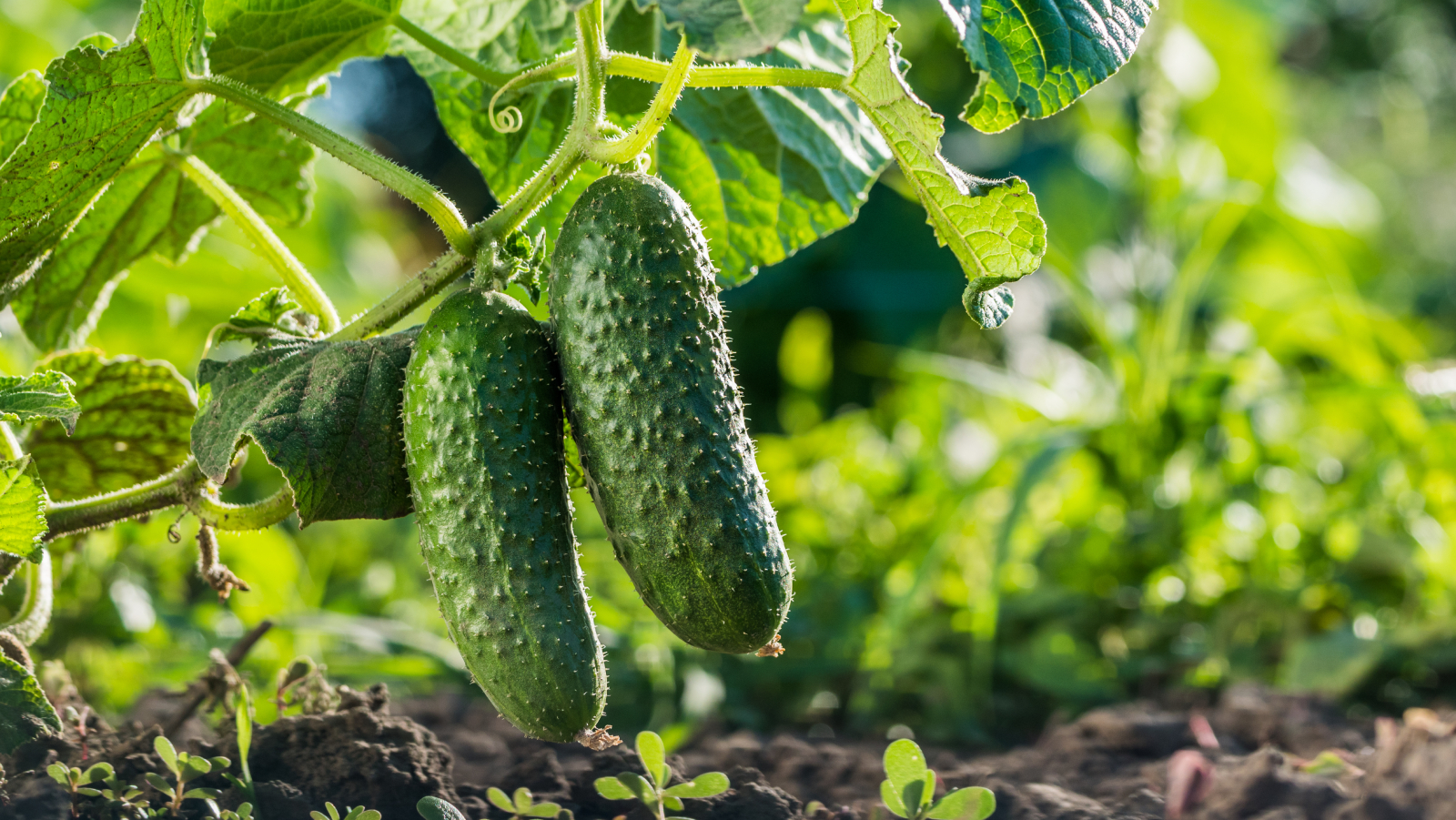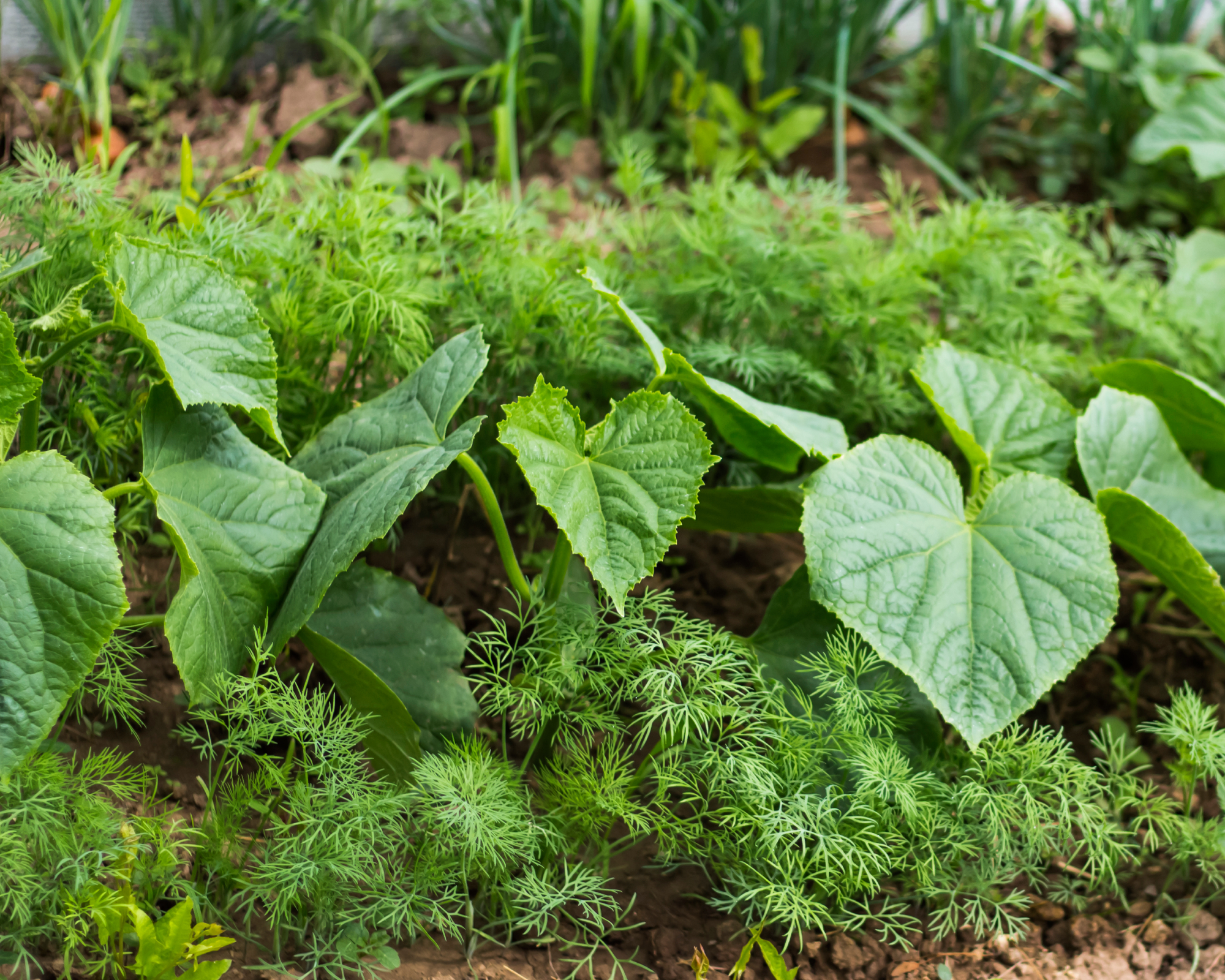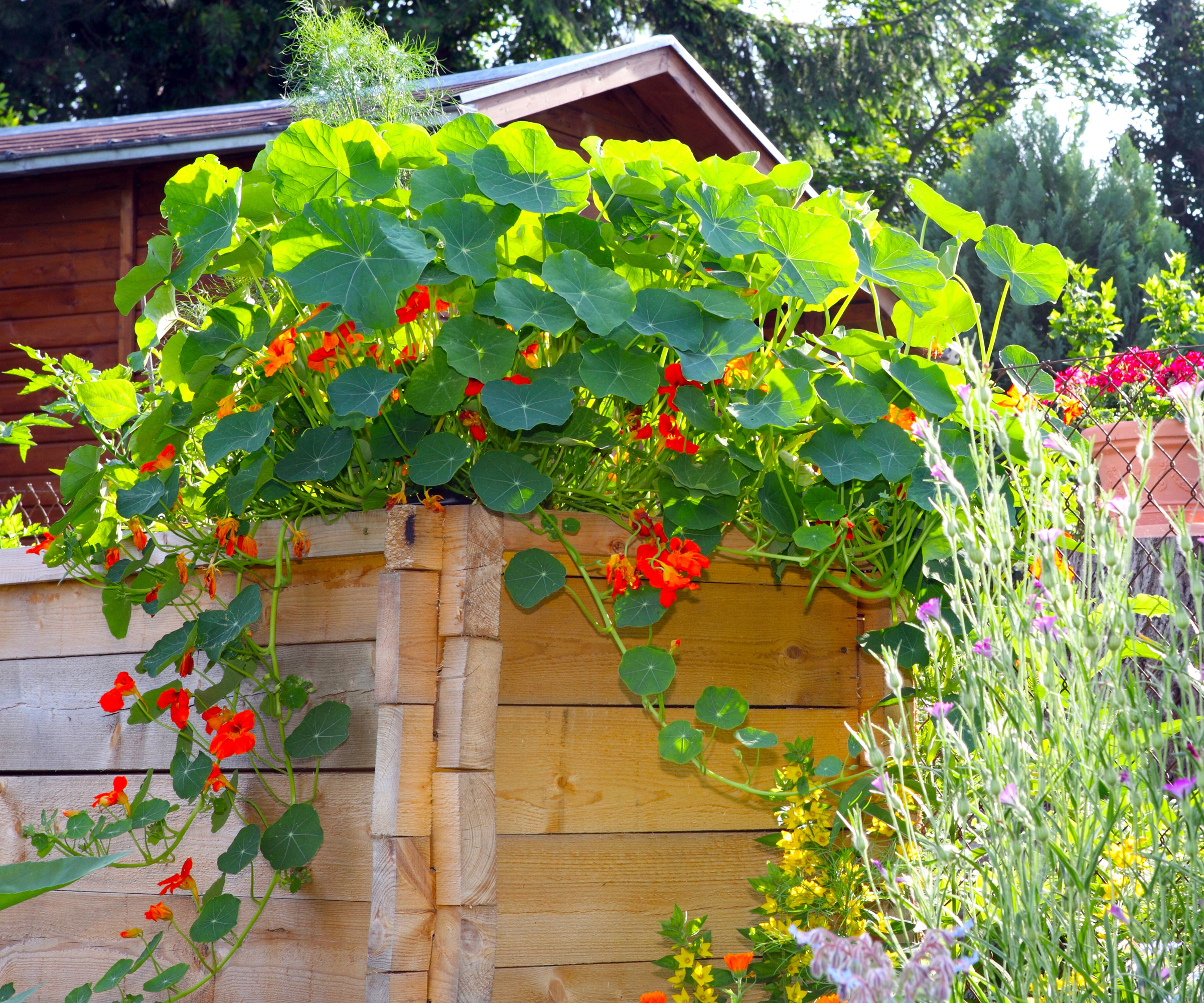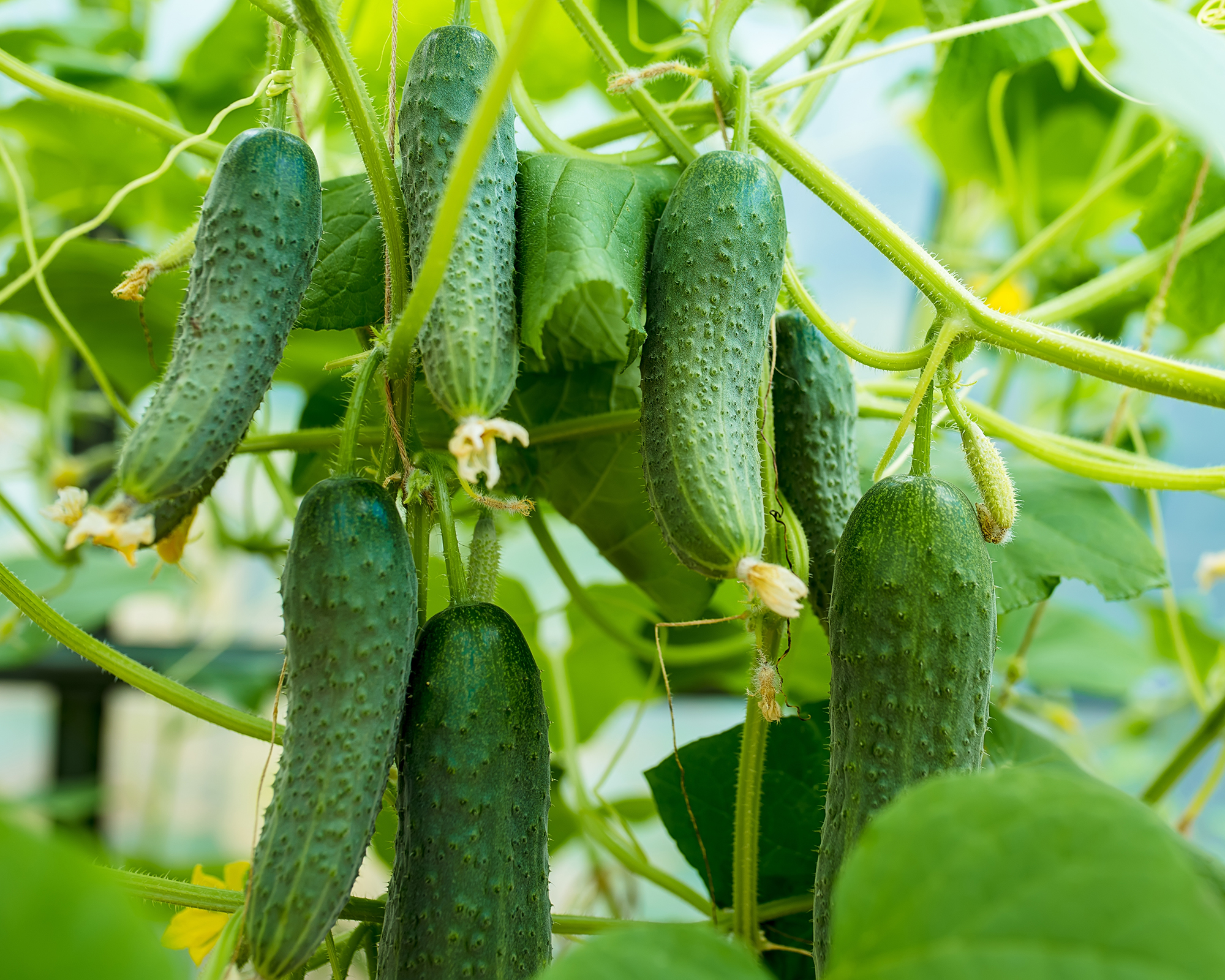
Sign up for the Gardening Know How newsletter today and receive a free copy of our e-book "How to Grow Delicious Tomatoes".
You are now subscribed
Your newsletter sign-up was successful
If you’re looking to boost your cucumber production and deter pests and diseases naturally, cucumber companion plants could be the solution. Just as humans are social creatures and we’re drawn to certain other people, many garden crops benefit from being around certain other plants.
Choosing the right cucumber companion plants can help cukes thrive much like good friends can help us humans thrive. However, while there are some plants that make growing cucumbers easier, there are others that can impede development. They may crowd the plant or hog water, sun, and nutrients. Knowing the most and least suitable companions for cucumbers is important to growing strong, healthy plants.
So what are the best companion plants for cucumbers? Read on to learn what to plant with cucumbers and which plants to keep away from cukes for bigger harvests and healthier plants.
Benefits of Cucumber Companion Plants
Companion planting vegetables like cucumbers has several benefits. It can repel pests, encourage pollinators, improve soil, keep roots cool, retain soil moisture, prevent disease, as well as increase yields and maximize your growing space.
One of the ways companion plants for cucumbers, as well as companion plants for other vegetables, work is by creating diversity in the garden. Generally, we tend to plant tidy rows of just a few plant species. But this isn’t how nature functions and so planting this way can cause problems.
Groupings of similar plants are called monocultures. Monocultures are more susceptible to pests and disease than diverse plantings. A cucumber beetle attack or a bout of powdery mildew can easily damage an entire crop of cucumbers grown closely together in one row or area of the garden.

By increasing the diversity of your garden, you are mimicking nature and minimizing disease and pest attacks. Utilizing cucumber companion plants can not only lessen potential pest attacks, but can also shelter beneficial insects that prevent pests and help plants.
Sign up for the Gardening Know How newsletter today and receive a free copy of our e-book "How to Grow Delicious Tomatoes".
Some plants that grow well with cucumbers, such as legumes, can also help enrich the soil. Common types of legumes like peas, beans, and clover have root systems that colonize Rhizobium bacteria and fix atmospheric nitrogen, which is then turned into nitrates.
Some of this goes towards nurturing the legume and some is released into the surrounding soil as the plant decomposes. The nitrogen is then available to any plants growing nearby and will nourish them and help them grow.
Best Cucumber Companion Plants
Cucumbers do well with corn and beans since all three plants enjoy the same growing conditions. Corn also acts as a natural trellis for cukes while they enjoy the additional nitrogen in the soil provided by the beans.
Other crops that make good cucumber companion plants include beets, cabbage, carrots, garlic, lentils, peas, peppers, and radishes—which deter cucumber beetles. Tomatoes are also a good choice as a cucumber companion plant. Broccoli, cauliflower, lettuce, and onions also grow well alongside cukes.

Nasturtiums are said to improve the flavor and growth of cucumbers, while dill and oregano can help attract beneficial insects. Chives, with its pungent aroma, also repels aphids and Japanese beetles that can plague cucumbers. Oregano is another popular pest control herb and does well as a cucumber companion plant.
As a tea, chamomile soothes and calms, but as a companion plant for cucumbers it beckons beneficial predators like hoverflies and wasps that feed on pests, making it another one of the best herbs for companion planting.
Brightly colored marigolds repel beetles seeking to feed on cukes. Other flowers, like sunflowers, make for pollinator-friendly companion plants as well. Zinnias can help attract more pollinators to your cucumbers to ensure they’re properly pollinated and produce tons of fruit. Tansy flowers can also discourage ants, beetles, flying insects, and other pests.
Bad Companion Plants for Cucumbers
Cucumbers and potatoes are not symbiotic and should not be planted near each other. Though many herbs are good companion plants for cucumbers, keep rue and sage away from them. Lovage and Jerusalem artichokes are also bad cucumber companion plants and should be grown elsewhere in the garden.
Plants like pumpkin, summer squash, and melon—which are in the same family as cucumbers—are not good planted in close proximity to cukes. Their similar growing requirements result in too much competition for nutrients and water. Also, since they are members of the same family (Cucurbita), they are susceptible to the same diseases and pests.

Frequently Asked Questions
Can I plant cucumbers and tomatoes together?
Yes, tomatoes and cucumbers do well together since both crops have similar growing requirements. That said, results will be most favorable if you combine a vining cucumber with a determinate tomato or a bush cucumber with an indeterminate tomato. Pay attention to your spacing and give each crop room for adequate sunlight, irrigation, and access to nutrients.
Can peppers and cucumbers be planted together?
Yes, peppers and cucumbers can be grown together since they have similar growing requirements and will attract similar beneficial pollinators. If you try this, be sure to grow a vining cucumber on a trellis behind your peppers to keep from shading them.

Amy Grant has been gardening for 30 years and writing for 15. A professional chef and caterer, Amy's area of expertise is culinary gardening.
